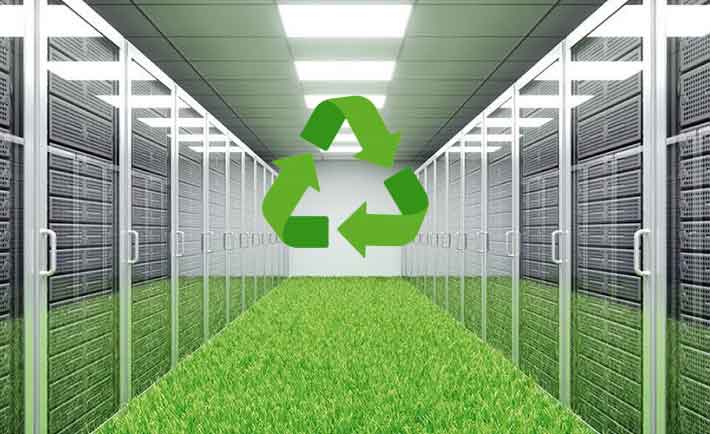Centros de Datos Verdes: El Futuro Sostenible de la Infraestructura Digital
En la era digital actual, los centros de datos son el corazón de nuestra economía y sociedad, almacenando y procesando cantidades masivas de información. Sin embargo, su operación conlleva un consumo significativo de energía, agua y otros recursos, lo que plantea un desafío creciente en términos de sostenibilidad.
Es aquí donde el concepto de «centros de datos verdes» o «centros de datos sostenibles» cobra una importancia vital, buscando equilibrar la demanda tecnológica con la responsabilidad ambiental.
Un centro de datos verde implementa estrategias y tecnologías para minimizar su impacto ambiental, reducir el consumo de energía y agua, y optimizar la gestión de residuos.
Este enfoque no solo beneficia al planeta, sino que también ofrece ventajas económicas y operativas considerables.
Certificaciones Verdes para Centros de Datos: Una Guía para la Excelencia
Para demostrar y validar el compromiso con la sostenibilidad, los centros de datos pueden buscar diversas certificaciones reconocidas globalmente. Estas certificaciones no solo actúan como un distintivo de calidad ambiental, sino que también proporcionan un marco para la mejora continua:
- LEED (Leadership in Energy and Environmental Design): Desarrollada por el U.S. Green Building Council, LEED es una de las certificaciones más prestigiosas para edificios sostenibles, incluyendo centros de datos. Evalúa múltiples categorías como eficiencia del agua, energía y atmósfera, materiales y recursos, y calidad ambiental interior.
- BREEAM (Building Research Establishment Environmental Assessment Method): Originaria del Reino Unido, BREEAM es otra certificación global que evalúa la sostenibilidad de edificios e infraestructuras, incluyendo el rendimiento energético, el uso del agua, la gestión de residuos y el impacto ecológico.
- ENERGY STAR: Este programa de la EPA (Environmental Protection Agency) en EE. UU. permite a los centros de datos calificar y recibir una etiqueta si cumplen con estrictos criterios de eficiencia energética, comparándose con instalaciones similares.
- ISO 14001 (Sistemas de Gestión Ambiental): Aunque no es específica para centros de datos, esta norma internacional proporciona un marco para que las organizaciones implementen un sistema de gestión ambiental efectivo, ayudando a identificar y controlar su impacto ambiental.
- EU Code of Conduct for Data Centres (Eficiencia Energética): Si bien no es una certificación per se, es un código de buenas prácticas voluntario promovido por la Comisión Europea que anima a los operadores a reducir el consumo de energía y el impacto ambiental.
Al integrar certificaciones, adoptar estrategias innovadoras y comprender los múltiples beneficios, las organizaciones pueden transformar sus centros de datos en activos sostenibles que impulsan el crecimiento tecnológico y la responsabilidad ambiental de la mano.
Es hora de construir un futuro digital más eficiente, resiliente y verde.



